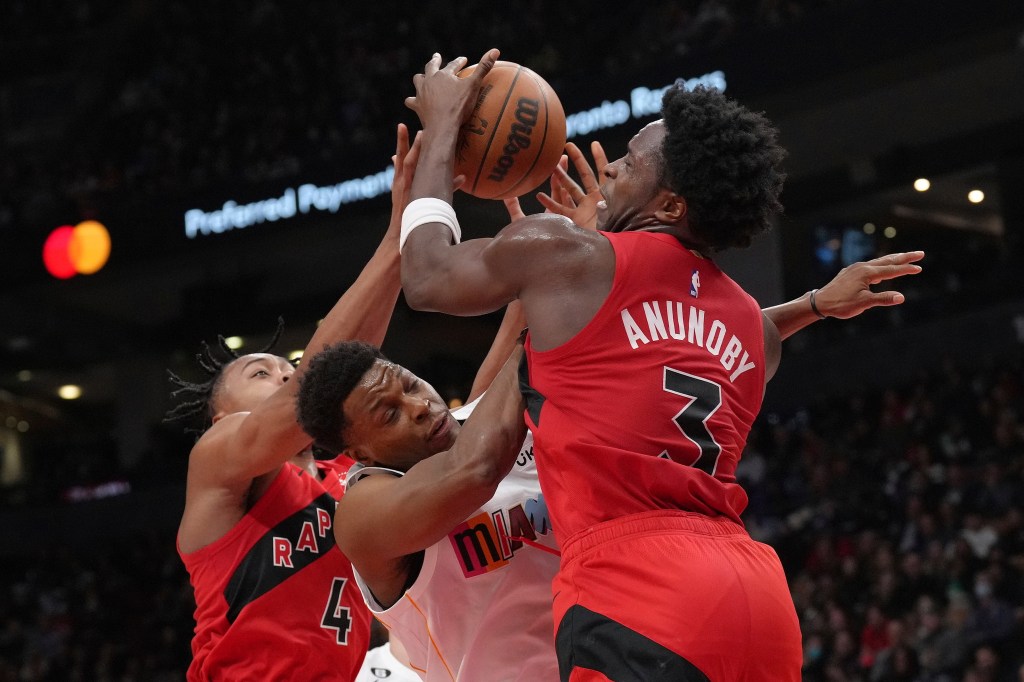Analyzing The Knicks' Overtime Defeat

Table of Contents
Offensive Struggles in Overtime
The Knicks' offense in overtime was a significant contributor to their loss. The team's usually potent attack sputtered, plagued by several critical issues. Their struggles in the extra period directly impacted the final outcome. The Knicks' offense simply couldn't generate enough points when it mattered most.
- Low field goal percentage in overtime: The Knicks shot a dismal 25% from the field in overtime, failing to capitalize on scoring opportunities. This poor shooting percentage underscores their offensive ineffectiveness.
- Turnovers at critical moments: Several crucial turnovers in overtime handed the Celtics easy transition opportunities, essentially gifting them points. These unforced errors compounded the Knicks’ offensive woes.
- Missed free throws: Missed free throws, a usually reliable source of points for the Knicks, became a glaring weakness in overtime, further exacerbating the offensive struggles.
- Ineffective offensive plays: The offensive plays called by the Knicks' coaching staff seemed to lack creativity and efficiency in the face of the Celtics' tight defense. The Knicks struggled to find open shots.
- Lack of ball movement: The Knicks' offense became stagnant in overtime, lacking the usual ball movement that had characterized their earlier performance. This resulted in rushed shots and poor shot selection.
The cumulative effect of these offensive issues left the Knicks significantly short on points needed to secure a victory. The Knicks' offense, normally a strength, became their biggest weakness in this overtime period.
Defensive Breakdown in the Final Minutes
While the Knicks' offense faltered, their defensive performance in the final minutes was equally concerning. The Celtics exploited defensive vulnerabilities, consistently finding ways to penetrate the Knicks' defense. The overtime collapse was largely due to a breakdown in defensive execution.
- Opponent's successful offensive strategies: The Celtics successfully targeted mismatches and exploited gaps in the Knicks' defensive rotations, leading to easy baskets.
- Missed defensive assignments: Several key defensive assignments were missed, allowing the Celtics' players to get open looks and score uncontested baskets.
- Failure to contain key opposing players: The Knicks failed to effectively contain Jayson Tatum and Jaylen Brown, who proved to be unstoppable in the overtime period. Their inability to contain star players was crucial in the loss.
- Breakdown in rebounding: The Knicks struggled to secure rebounds, giving the Celtics numerous second-chance opportunities. The breakdown in rebounding proved costly, gifting the Celtics multiple extra possessions.
- Late-game defensive lapses: The late-game defensive lapses, particularly during the final minutes of overtime, proved catastrophic and ultimately determined the outcome of the game.
These defensive shortcomings allowed the Celtics to gain momentum, ultimately leading to the Knicks' defeat. The Knicks' defense needs to shore up these vulnerabilities to avoid similar collapses in future games.
Impact of Key Player Performance
The performance of key Knicks players in overtime significantly influenced the outcome of the game. While some players stepped up, others struggled under pressure.
- Individual player statistics in overtime: Jalen Brunson had a strong overtime, but other key players like Julius Randle struggled to score efficiently. A detailed look at individual statistics is vital to understanding the game.
- Impact of injuries (if any) on player performance: Any injuries sustained during the game could have impacted player performance, potentially leading to decreased effectiveness.
- Analysis of key plays made or missed by individual players: Specific plays made or missed by individual players can be analyzed to determine their contribution to the overall outcome.
- Evaluation of player decision-making in crucial moments: The quality of player decision-making during critical moments can often make or break a team's performance.
The inconsistency in key player performances highlighted the need for better team cohesion and individual focus under pressure. The Knicks’ ability to rely on all key players consistently is essential for future success.
Coaching Decisions Under Scrutiny
The Knicks' coaching decisions during the game, especially in overtime, warrant scrutiny. While some choices were strategic, others could be seen as questionable. The analysis of coaching strategies plays a significant role in understanding the Knicks’ loss.
- Effectiveness of substitutions: The timing and effectiveness of the coach's substitutions could be analyzed to see if they positively or negatively impacted the game's flow.
- Offensive and defensive play calls: The offensive and defensive play calls made by the coach could be reviewed for their effectiveness and appropriateness in light of the game situation.
- Time management decisions: The coach's time management decisions could also be evaluated to see if any opportunities were missed or poor tactical choices made.
- Potential adjustments that could have been made: This section could explore whether different tactical adjustments could have altered the outcome.
The coaching staff's choices may have played a contributing role in the Knicks' loss, and an in-depth review is necessary to make improvements. A critical analysis of coaching strategies might shed light on areas for growth and improvement.
Conclusion
The Knicks' overtime defeat to the Celtics resulted from a combination of factors: significant offensive struggles marked by poor shot selection and critical turnovers in overtime; defensive breakdowns that allowed the Celtics easy scoring opportunities; inconsistent performances from key players; and questionable coaching decisions that failed to adapt to the game’s flow. These combined elements contributed to the Knicks' devastating loss. Looking ahead, the Knicks need to address these weaknesses to improve their performance. Learning from this Knicks' loss is crucial for future games.
What were your thoughts on the Knicks' overtime defeat? Share your analysis and predictions for their upcoming games in the comments below! Let's discuss the Knicks' loss and how they can improve moving forward.

Featured Posts
-
 Watch Celtics Vs Knicks Live Free Stream Tv Listings And Viewing Guide
May 17, 2025
Watch Celtics Vs Knicks Live Free Stream Tv Listings And Viewing Guide
May 17, 2025 -
 Dubay Realnost Raboty Dlya Rossiyan V 2025 Godu
May 17, 2025
Dubay Realnost Raboty Dlya Rossiyan V 2025 Godu
May 17, 2025 -
 How To Watch Celtics Vs Knicks Live Stream Tv Channel Guide And Viewing Options
May 17, 2025
How To Watch Celtics Vs Knicks Live Stream Tv Channel Guide And Viewing Options
May 17, 2025 -
 Rune Neocekivani Pobednik U Barseloni
May 17, 2025
Rune Neocekivani Pobednik U Barseloni
May 17, 2025 -
 Rfk Jr S Hhs To Halt Routine Covid Vaccine Recommendations For Children And Pregnant Women
May 17, 2025
Rfk Jr S Hhs To Halt Routine Covid Vaccine Recommendations For Children And Pregnant Women
May 17, 2025
Latest Posts
-
 Victoria De Knicks Sobre 76ers Anunoby Con 27 Puntos Racha Negativa Para Filadelfia
May 17, 2025
Victoria De Knicks Sobre 76ers Anunoby Con 27 Puntos Racha Negativa Para Filadelfia
May 17, 2025 -
 Anunoby Brilla Con 27 Puntos En Victoria De Knicks Sobre 76ers
May 17, 2025
Anunoby Brilla Con 27 Puntos En Victoria De Knicks Sobre 76ers
May 17, 2025 -
 Ny Knicks Vs Brooklyn Nets Free Live Stream 4 13 25 Time Tv Channel And Nba Season Finale Details
May 17, 2025
Ny Knicks Vs Brooklyn Nets Free Live Stream 4 13 25 Time Tv Channel And Nba Season Finale Details
May 17, 2025 -
 Knicks Derrotan A 76ers 105 91 Anunoby Lidera Con 27 Puntos
May 17, 2025
Knicks Derrotan A 76ers 105 91 Anunoby Lidera Con 27 Puntos
May 17, 2025 -
 Anunoby Anota 27 Knicks Vencen A 76ers Novena Derrota Seguida
May 17, 2025
Anunoby Anota 27 Knicks Vencen A 76ers Novena Derrota Seguida
May 17, 2025
